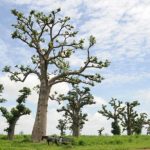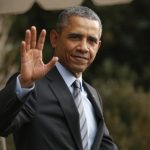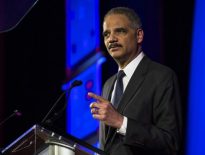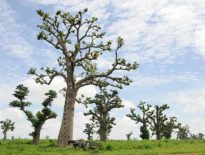(Reuters) – Anti-government demonstrators put up barricades and set fire to trash in Caracas on Monday despite calls from within the opposition to rein in protests that have led to 13 deaths in Venezuela’s worst unrest for a decade.
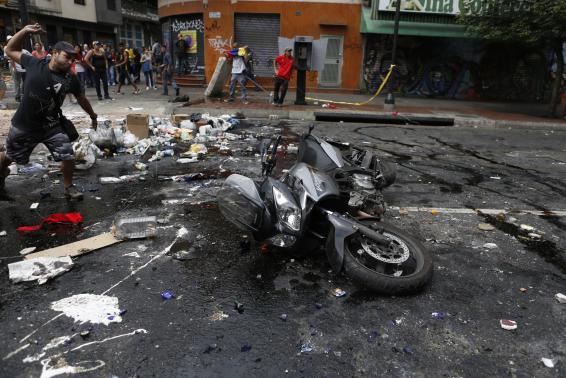
Traffic in the capital slowed to a crawl and many people stayed home as protesters burned trash and piled debris along main avenues a day after opposition leader Henrique Capriles called on them to keep demonstrations peaceful.
We know we’re bothering people but we have to wake up Venezuela! student Pablo Herrera, 23, said next to a barricade in the affluent Los Palos Grandes district of Caracas.
Authorities in the convulsed border state of Tachira confirmed another death: a man who fell from his second-storey apartment after being hit by a bullet from a nearby protest.
The demonstrations are the biggest challenge to President Nicolas Maduro’s 10-month-old government, though there is no sign they could topple him or affect the OPEC member’s oil shipments. Venezuela is Latin America’s biggest exporter of crude oil and has the world’s largest petroleum reserves.
The government says 529 people have been charged over the unrest, with most given warnings but 45 kept behind bars. About 150 people have been injured, authorities say.
Capriles, 41, spurned an invitation to meet Maduro in the afternoon as part of a gathering of mayors and governors that some had hoped would open up communications between both sides.
This is a dying government … I’m not going to be like the orchestra on the Titanic, he told reporters. Miraflores (presidential palace) is not the place to talk about peace, it’s the center of operations for abuses of human rights.
Capriles and other opposition figureheads are demanding that the government release imprisoned protest leader Leopoldo Lopez and about a dozen jailed student demonstrators.
They also want Maduro to disarm pro-government gangs and address national issues ranging from crime to shortages of basic goods. Hardline student protesters, though, are demanding that Maduro step down, less than a year into his term.
If there’s one thing these violent protests have done, it’s unite ‘Chavismo’, Maduro told state television, using the term for government supporters coined during the 14-year rule of his predecessor, Hugo Chavez.
The president, a 51-year-old former union activist who has made preserving Chavez’s legacy the centerpiece of his rule, accuses opponents of planning a coup backed by Washington.
ACCUSATIONS FLY
Addressing a rally of pro-government motorbike riders on Monday, Maduro accused the opposition of bringing in mercenaries to fuel the violence, including one man from the Middle East who was detained with 11 telephones.
Prices of Venezuela’s bonds surged as much as 4 percent on Monday, though this was largely due to the announcement of a new currency exchange platform that investors believe will strengthen government finances.
In a rare stance for a Socialist Party official, the governor of turbulent Tachira state criticized the government’s response to the protests and called for Lopez’s release.
It’s a matter of peace; all of those in jail for political motives should be sent home, said Jose Vielma, referring to Lopez and another well-known opposition-linked prisoner.
Socialist Party leaders have for years avoided making comments that could appear to be diverging from the party line, making Vielma’s comment all the more uncommon.
The protests have hit the border state Tachira harder than any other, with gangs of student demonstrators now the de facto authorities in some parts of its principal cities.
Even though Maduro has sent in troops to restore order, transport is frequently disrupted by improvised roadblocks that charge tolls to those seeking passage and throw rocks at those who attempt to move on without paying.
Supermarkets in Tachira are opening only for several hours in the morning, with supplies of food limited because delivery trucks cannot get through.
The nationwide wave of protests began with sporadic demonstrations in Tachira’s capital of San Cristobal due to outrage over an attempted rape, sparking student protests around the region.
PROTESTS GRIND ON
Lopez, a 42-year-old Harvard-educated economist and firebrand opposition leader, rode the coattails of those protests to create a nationwide effort called La Salida or The Exit meant to end Maduro’s rule.
The government said on Monday that 13 people had died in incidents directly related to the unrest, most from gunshots. Some 30 more, however, have also died from illnesses not attended to properly due to the protests, Maduro said.
Roadblocks of burning trash and clashes between rock-throwing students and tear-gas-lobbing troops have shown no sign of forcing Maduro from power but have become an annoyance for the mostly well-to-do neighborhoods where they take place.
This is brutality. We are fighting for our freedom because when we go to the supermarket there’s no flour, there’s no sugar, said Yesenia Alvarado, 29, an architect, at the upscale Plaza Altamira where a barricade was blocking traffic.
As she spoke, a man driving a pickup tried to force his way through the barricade, at one point getting out and piling debris into the back of the truck. Angry demonstrators restored the barricade and prevented him from moving ahead.
Residents of Caracas’ poorer west side have staged only a few minor demonstrations, though government critics there have joined traditional protests of banging pots and pans at their windows during Maduro’s hours-long television broadcasts.
The wave of violence has shifted attention away from economic troubles including inflation of 56 percent, slowing growth, and shortages of staples such as milk and flour.
The opposition blames these problems on Chavez’s economic legacy of nationalizations, currency controls and constant confrontation with businesses.
They say socialism has crippled private enterprise and weakened state institutions while spawning a nepotistic elite that enriches itself with the country’s oil wealth.
Maduro calls it an economic war led by the opposition. The former bus driver calls himself the son of Chavez and has vowed to continue the generous public spending that helped reduce poverty and propelled the late president to repeated election victories over 14 years.
The White House, responding to Maduro’s call last week for dialogue with Washington, urged him on Monday to begin talks with his own people instead.
(Additional reporting by Javier Farias in San Cristobal and Girish Gupta and Diego Ore in Caracas; Editing by James Dalgleish)


